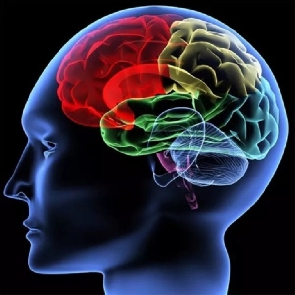Health News of Thursday, 23 November 2023
Source: Dr Simon Badu
Daily Exercise: How physical activity boosts brain health
A plethora of scientific data has surfaced in recent years, emphasizing the significant neurological advantages of regular exercise.
Exercise has many physical benefits, but it is also a powerful tool for improving cognitive performance and brain health. Our body's command centre, the brain, needs stimulation and movement to function properly.
Physical activity, such as brisk walking, cycling, swimming, or playing sports, sets off a series of beneficial processes in the brain.
Increasing blood flow and oxygen delivery to the brain, which revitalizes its cells and promotes the formation of new blood vessels, is one of the main processes.
The effect of exercise on neuroplasticity—the brain's capacity to rearrange itself and create new neural connections throughout life—is arguably one of the most exciting findings.
Research has indicated that consistent engagement in physical exercise can trigger the synthesis of neurotrophic factors, including brain-derived neurotrophic factor (BDNF), which promotes neuronal development and synapse formation. This phenomenon is very important for memory, learning, and general cognitive function.
Exercise also provides protection against neurodegenerative illnesses. According to research, those who lead active lifestyles are less likely to develop diseases like Parkinson's and Alzheimer's.
Exercise boosts mood and protects against brain damage and decline by increasing the production of neurotransmitters like dopamine and serotonin.
Beyond these physiological alterations, physical activity has a big influence on mental health. Engaging in physical activity can effectively alleviate stress by lowering cortisol levels, which are known to negatively impact cognitive performance when they are persistently elevated.
Additionally, the endorphins released during physical activity enhance mental clarity, focus, and attentiveness while also promoting a sense of well-being. It is critical to understand that exercise's neurological benefits are neither age- nor gender-specific.
Everyone can benefit from regular physical activity, including senior folks. Exercise has been connected to increased academic achievement, an extended attention span, and improved problem-solving abilities in kids and teenagers. It can lessen age-related cognitive decline and preserve cognitive function in older persons.
It is not necessary to engage in intense training or training regimens to include fitness in our regular activities. When done regularly, even mild exercise can have a significant positive impact on the nervous system.
Whether it is dancing, gardening, or just going for frequent walks, the secret is to identify hobbies that one can stick with over time.
The value of incorporating physical activity into our patients' lives cannot be overstated by us as healthcare professionals. Encouraging people to adopt and maintain healthy lifestyle habits for the development of their brain health should include education about the neurological benefits of exercise in healthcare conversations.
In summary, there is no denying the astounding benefits of exercise for the nervous system. Frequent exercise appears to be a powerful strategy for improving brain health, with benefits ranging from protecting against cognitive decline to boosting neuroplasticity.
As we continue to explore this area of scientific inquiry, let us celebrate exercise's benefits to our most valuable organ—the brain—in addition to its physical advantages.











